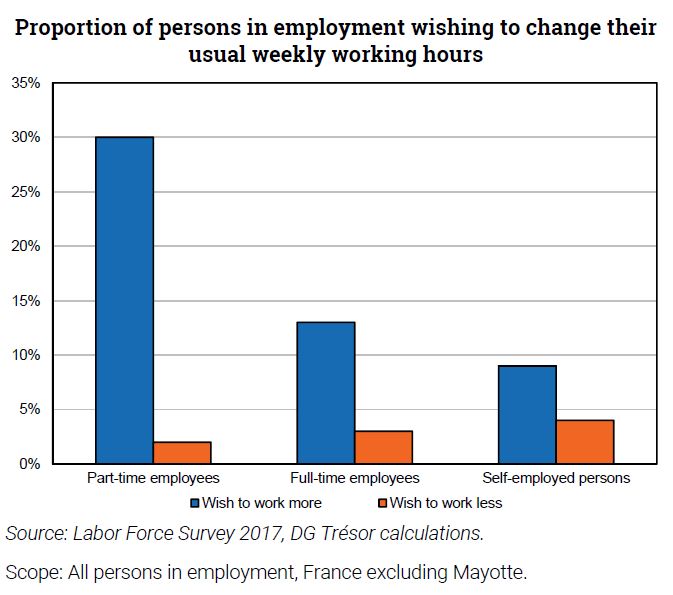Trésor-Economics No. 239 - Lifetime worked hours in France
GDP per capita is calculated from the hourly productivity of labour and the average per capita volume of labour input. In its turn, the latter depends on the number of hours worked per year by persons in employment, the level of unemployment and the participation rate, which inter alia reflects the length of economically active life, between the ages of entry to and exit from the labour market.
GDP per capita is calculated from the hourly productivity of labour and the average per capita volume of labour input. In its turn, the latter depends on the number of hours worked per year by persons in employment, the level of unemployment and the participation rate, which inter alia reflects the length of economically active life, between the ages of entry to and exit from the labour market.
Since 2005, changes in the total number of hours worked by all workers have sustained growth in Germany much more than in France.
According to certain international comparisons, the average annual hours worked per employee is lower in France than in other European countries. In a typical working week, the usual hours worked by French employees are in fact around the European average, but since working hours were reduced to 35 hours per week at the beginning of the 2000s, French workers are entitled to more days of annual leave entitlement than in other countries.
The relatively low participation rate compared with other countries can partly be explained by the fact that, in France, employees end their working life at an earlier age. Since French employees do not enter the labour market at an earlier age, this accentuates the difference between hours worked over the life cycle.
In France in 2017, one out of six persons in employment expressed the wish to work more hours. These were mainly part-time employees, especially who reported that their working part-time working was "involuntary". A significant proportion of full-time employees (13%) also reported that they would like to work more hours. These were employees on lower wages and with lower-than-average educational qualifications, and mainly on fixed-term or seasonal contracts.
Certain recent measures could in the long term foster an increase in worked hours in France. Several recent pieces of legislation, in particular the Acts of 8 August 2016 and 29 March 2018, have given more flexibility for companies to adjust working hours, to make greater use of overtime and additional hours, thereby enabling them to respond to fluctuations in demand. The latest pension reforms encourages a gradual increase in the average retirement age and should therefore increase the number of hours worked over the life cycle.
